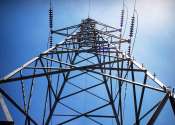Turning pine needles from fire risk to renewable fuel
The flammability of pine needles, a major fire hazard in the coniferous forests of India's vast sub-Himalayan belt, makes them an abundant source of renewable energy, say researchers.
Jun 19, 2023
0
18









